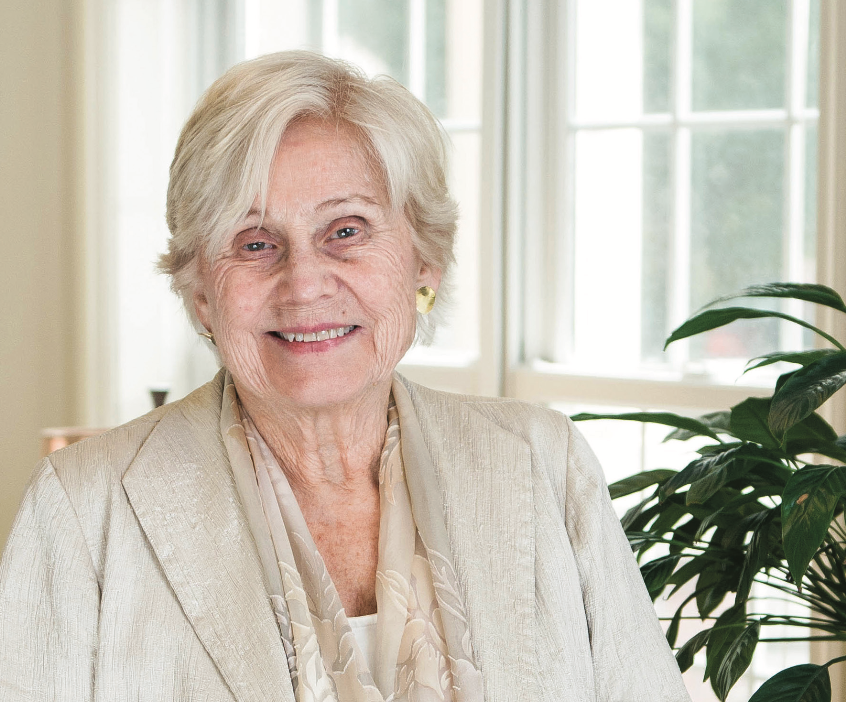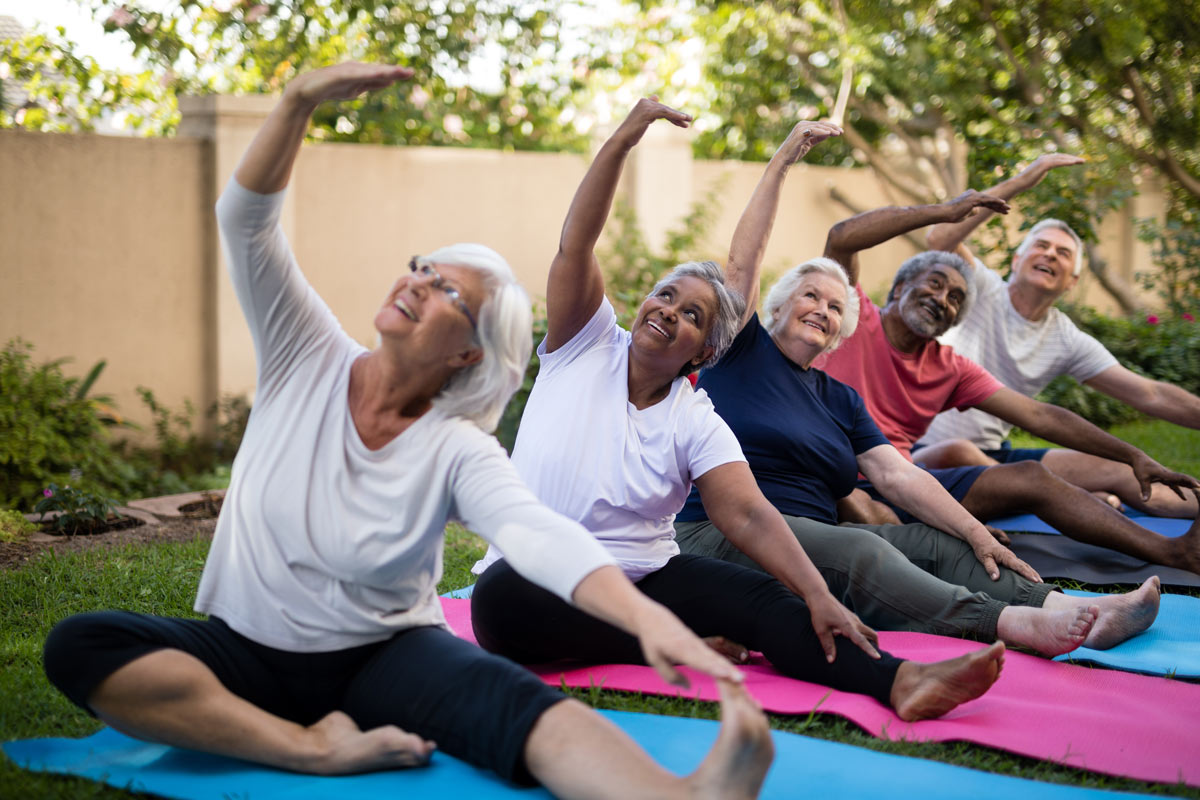These are words that capture what many older people in America are truly like today: Wise ~ Happy ~ Role Models ~ Healthy ~ Contented ~ Peaceful ~ Fulfilled ~ Joyful ~ Informed ~ Productive ~ Active ~ Up-to-Date
But aging has bad press and almost everybody continues to dread growing old. People continue to believe myths about old age and falsehoods. All too many of us continue to think about older people as: Unhappy ~ Sickly ~ Slow ~ Declining ~ Unproductive ~Burden on society ~ Demented ~ Dependent ~ Grumpy ~ Depressed ~ Forgetful ~ Out of it ~ Can’t teach an old dog ~ On the sidelines ~ Incompetent ~ Shaky
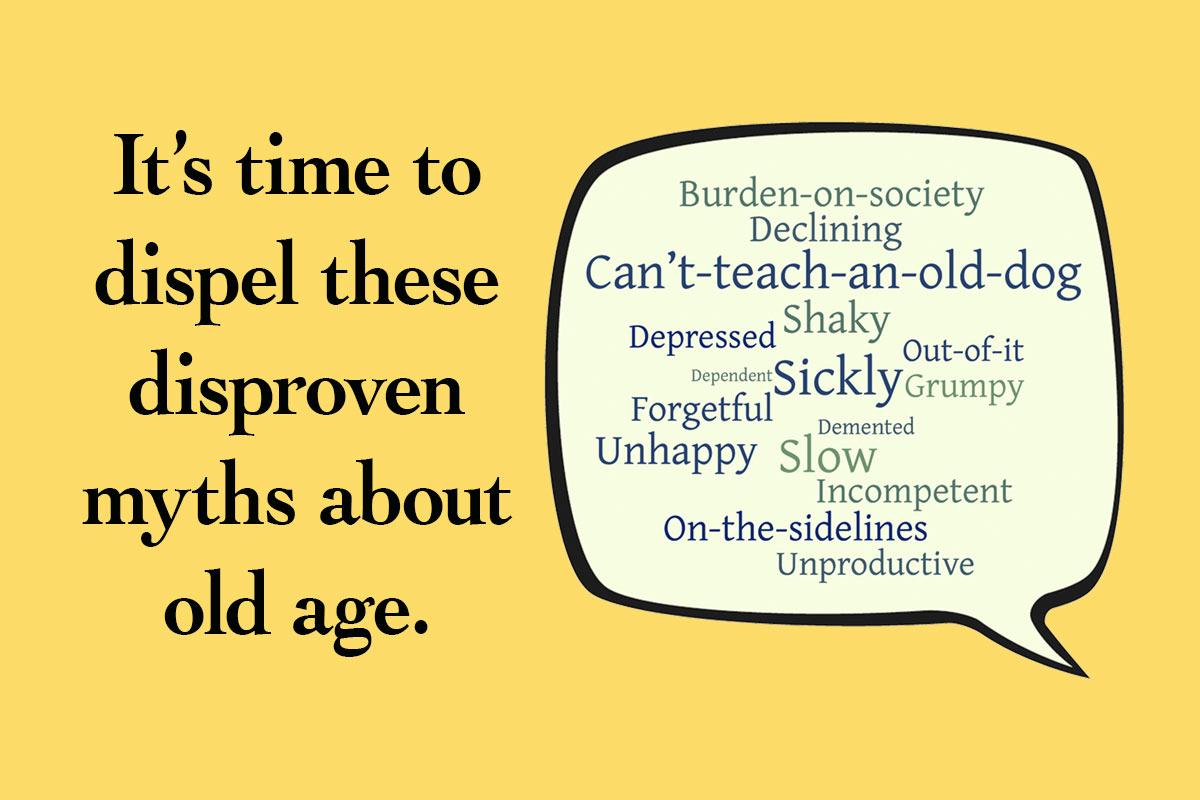
This, despite many active, feisty older people whom we know and those we observe in the news such as Queen Elizabeth, Joe Biden, Nancy Pelosi, Judy Woodruff, and Anthony Fauci.
Recent research has turned our beliefs about older people upside-down. Here are four important areas where there is the constant innovation that challenges our stereotypes of life as an older person and paints a new picture of possibilities.
1. Most older people in their 70’s and 80’s are happy, according to recent research by Laura Carstensen at the Center for Longevity at Stanford University and many others. Older people are happier than people in their 40’s, 50’s and 60’s. They explain that our long lives and experience bring us the perspective to handle the ups and downs of daily life. And as we age, we savor the time we have. Carstensen’s book, A Long Bright Future, is a good resource if you want to read more.
2. The mental health of older people is generally better than that of their younger counterparts. They are less anxious and less angry than younger people. They manage negative emotions better than younger people and are less likely to abuse alcohol and drugs. We now know that depression is not a part of normal aging. While dementia is a serious issue for a sizeable number, dementia’s onset is happening later and later in people’s lives. Years of education seem to be a major factor in this encouraging change.
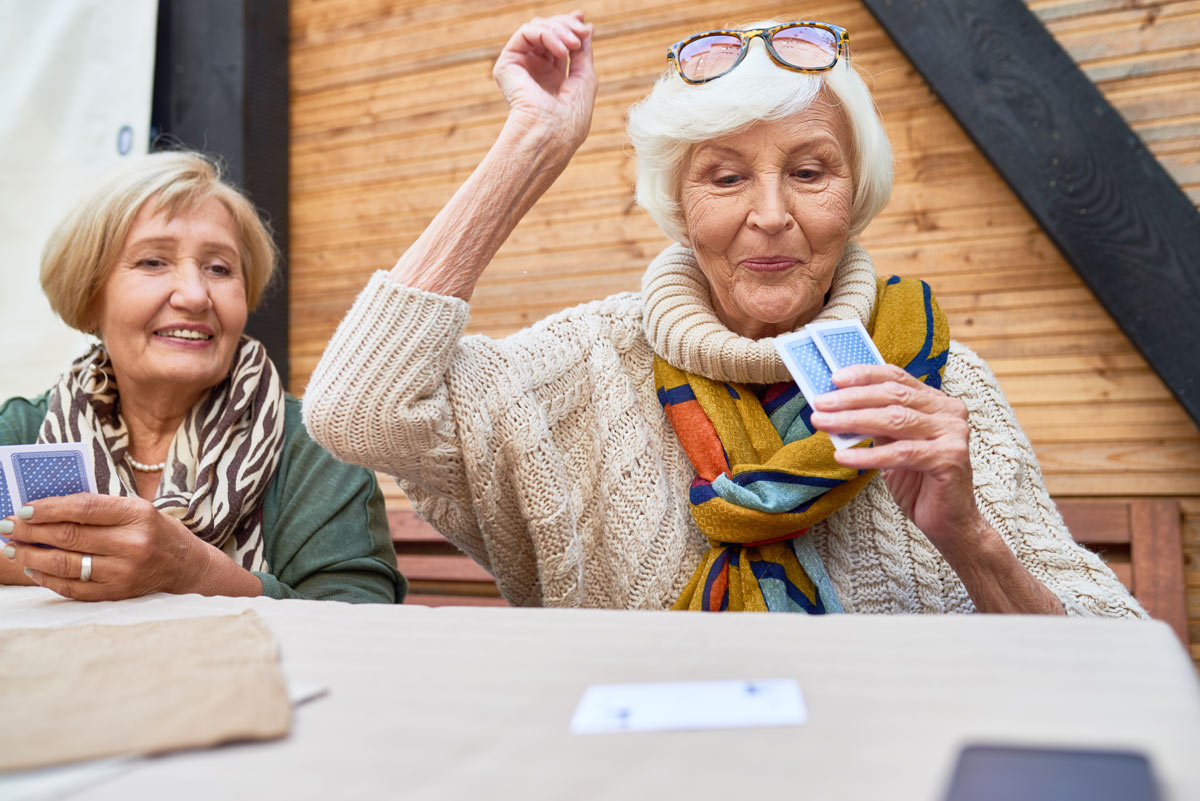
3. The aging brain retains its capacity to learn new things. Our brain can heal itself over time — -neuroplasticity is the word for that amazing characteristic. For years we heard our brains were shedding precious cells day by day as we aged and depleting our brainpower. But now we learn that is not the case.
4. Thanks to modern medicine most older people live pain-free and active lives. The 65+ generations get new hips, knees, and shoulders as well as treatment for all sorts of conditions including diabetes, cancer, and heart disease. We have hearing aids that work and a whole array of gadgets like one to put on our socks and one to pick up things on the floor that make life pleasant and easier. Innovative forms of treatment arrive in a steady stream.
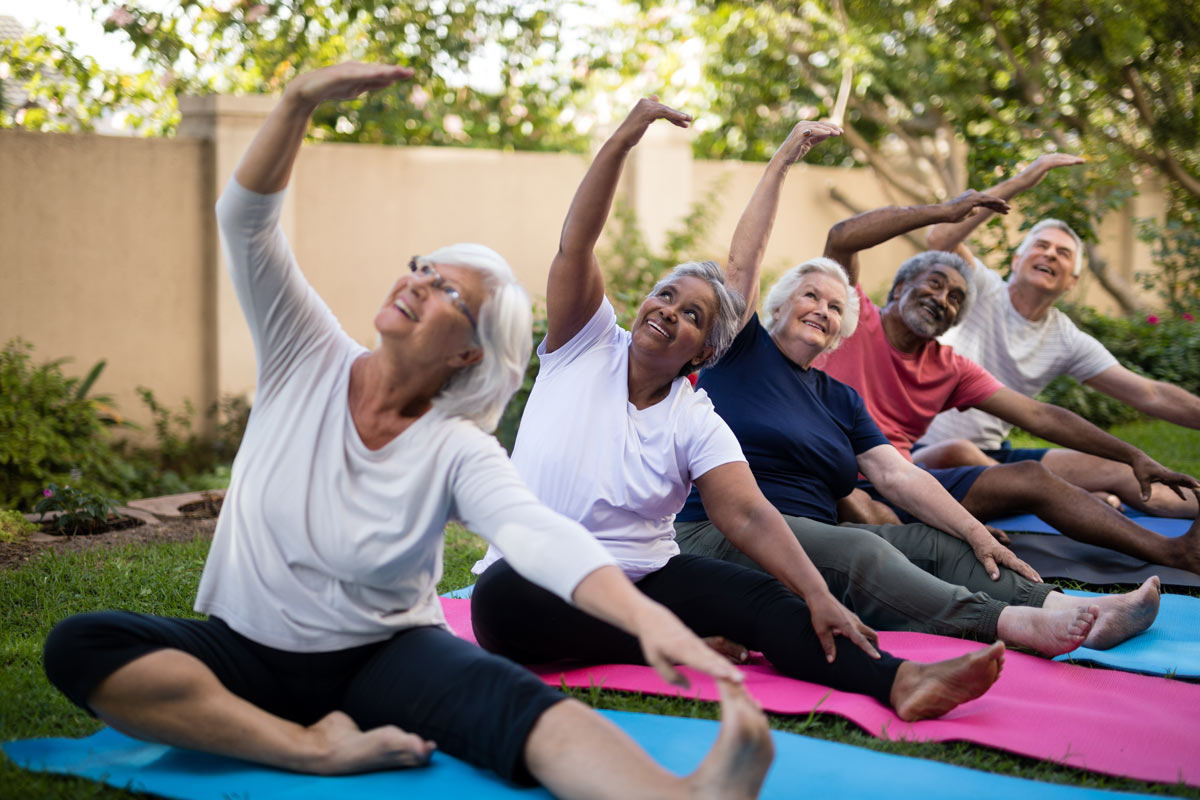
We are in the midst of a revolution of what it means to be old. It is a new day.
Despite all this GOOD NEWS, aging in America is still hard.
Aging is still hard in America because…
We live in a culture that values youth.
Young, beautiful bodies dominate the media. Many of us feel shame when our bodies show signs of aging like wrinkles or graying hair. We do our best to look younger by plastering our skin with expensive cosmetics and undergoing facelift surgeries. As we age and our body parts lose some of their capabilities, we need canes, walkers, wheelchairs, and hearing aids. Most people lose a bit of self-esteem with each loss of physical competence. Aging becomes a losing battle to stay young.
It doesn’t have to be this way — if only we saw these changes as to be expected as we age. If only we accepted aging itself as normal. Perpetual youth should not be the standard by which we judge ourselves.
Aging is still hard in America because…
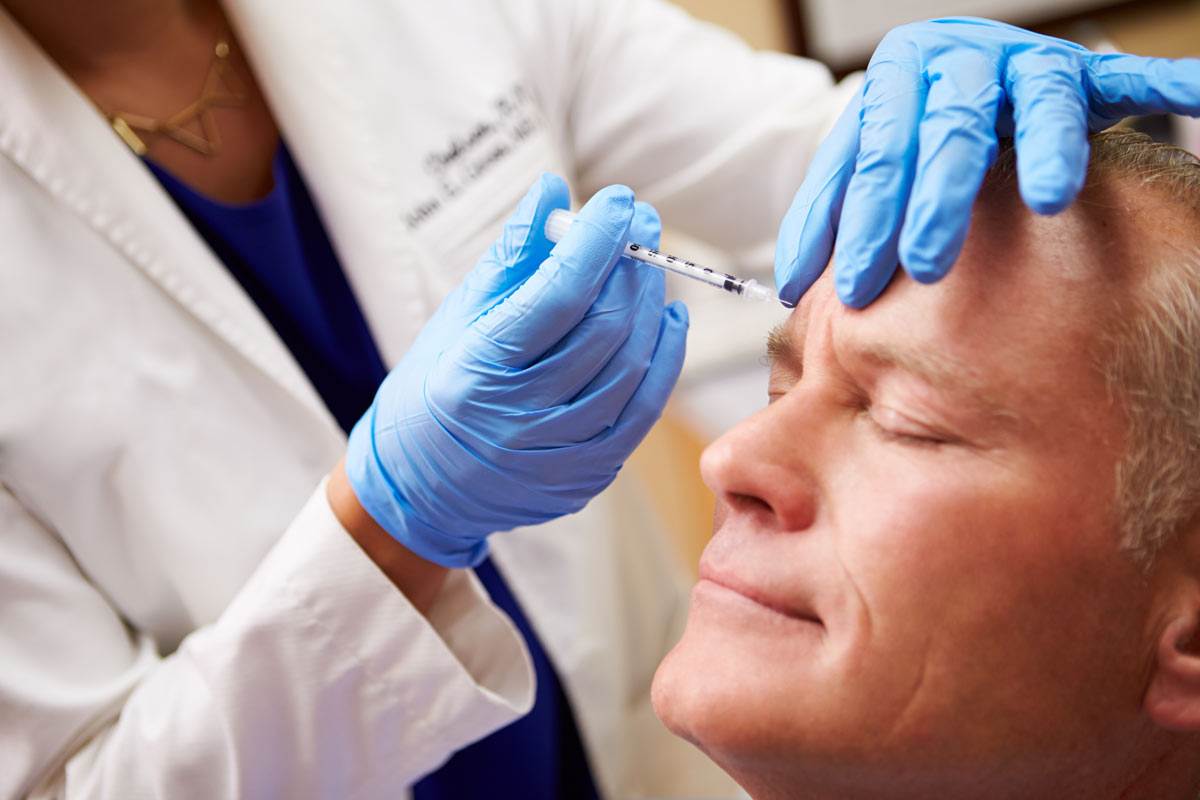
We live in a culture that values independence above all else.
What most of us in the 70+ age group fear is being a burden on our children or anyone else. We fear being dependent so much that we do everything we can to stay independent. We avoid asking for the help we need. We do our best to get out of the way and not be a bother even when we might be miserable. We need to stop admiring the idealized lone ranger who doesn’t need anyone. What is so terrible about asking for help when we need it? Shouldn’t our goals be interdependence and community anyway?
We are all dependent as children and our culture accepts this as normal. But to be dependent as we age is usually perceived as a failure. Failure of modern medicine is supposed to keep us all going full speed forever. Or a failure of will and character.
What if we felt worthy of taking it easy as we age, not only in the very last stages of life? What if everyone could say, “It is my turn. I took care of my children and maybe my parents and my spouse’s parents. And now it is my turn to sit back and receive care.” No apologies needed. It’s not a failure. It’s my due.
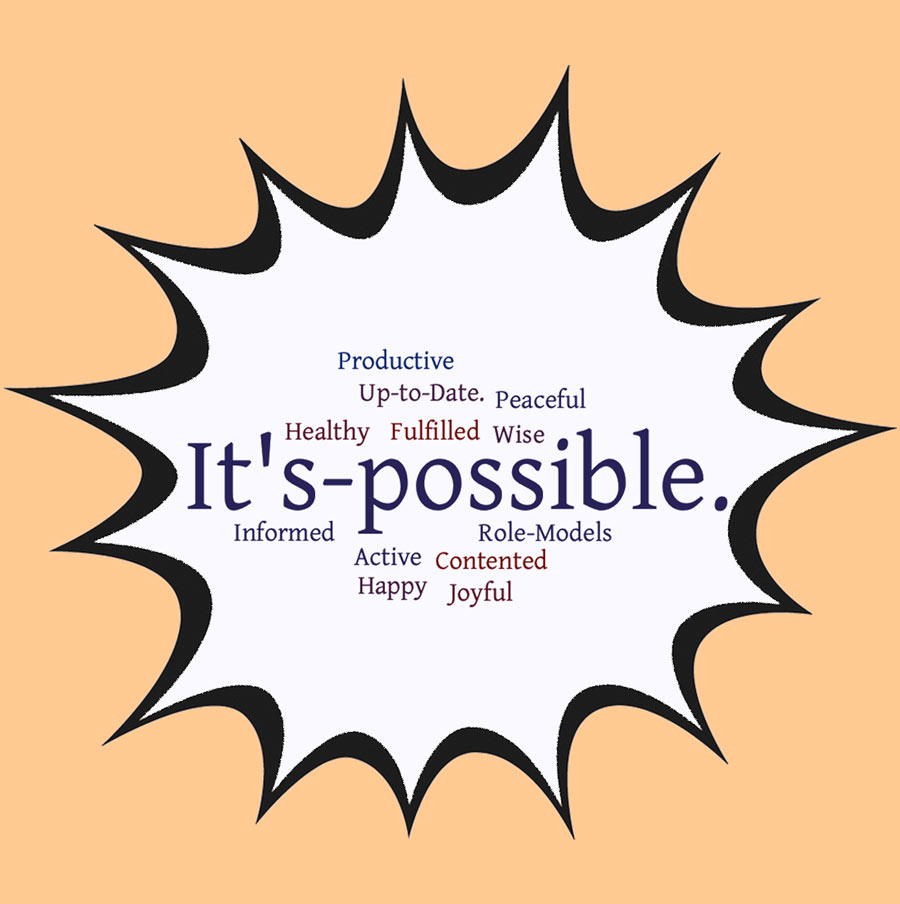
More GOOD NEWS. It’s our attitude about aging and dependency that’s wrong and that is something that we can change. And there is a real payoff to changing our thoughts. Those with positive attitudes about aging live 7.5 years longer than others, according to a study published in the Journal of Personality and Social Psychology in 2002. As young adult novelist Ann Brashares has said, “Your problem isn’t the problem, it’s your attitude about the problem.” Wise ~ Happy ~ Role Models ~ Healthy ~ Contented ~ Peaceful ~ Fulfilled ~ Joyful ~ Informed ~ Productive ~ Active ~ Up-to-Date. It’s possible.

